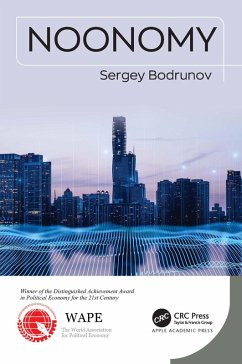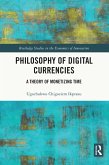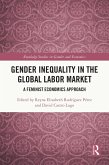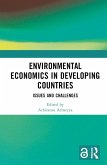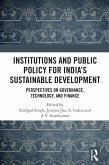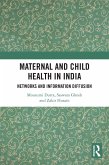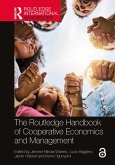Sergey Bodrunov
Noonomy (eBook, PDF)
137,95 €
137,95 €
inkl. MwSt.
Sofort per Download lieferbar

69 °P sammeln
137,95 €
Als Download kaufen

137,95 €
inkl. MwSt.
Sofort per Download lieferbar

69 °P sammeln
Jetzt verschenken
Alle Infos zum eBook verschenken
137,95 €
inkl. MwSt.
Sofort per Download lieferbar
Alle Infos zum eBook verschenken

69 °P sammeln
Sergey Bodrunov
Noonomy (eBook, PDF)
- Format: PDF
- Merkliste
- Auf die Merkliste
- Bewerten Bewerten
- Teilen
- Produkt teilen
- Produkterinnerung
- Produkterinnerung

Bitte loggen Sie sich zunächst in Ihr Kundenkonto ein oder registrieren Sie sich bei
bücher.de, um das eBook-Abo tolino select nutzen zu können.
Hier können Sie sich einloggen
Hier können Sie sich einloggen
Sie sind bereits eingeloggt. Klicken Sie auf 2. tolino select Abo, um fortzufahren.

Bitte loggen Sie sich zunächst in Ihr Kundenkonto ein oder registrieren Sie sich bei bücher.de, um das eBook-Abo tolino select nutzen zu können.
Shows that production will undergo qualitative changes due to technology that will create new opportunities for personal development and the satisfaction of wants and, simultaneously, engender risks associated with growth opportunities of human interference with nature and technogenic stress on the environment.
- Geräte: PC
- mit Kopierschutz
- eBook Hilfe
- Größe: 7.86MB
Andere Kunden interessierten sich auch für
![Philosophy of Digital Currencies (eBook, PDF) Philosophy of Digital Currencies (eBook, PDF)]() Ugochukwu Chigoziem IkpeazuPhilosophy of Digital Currencies (eBook, PDF)42,95 €
Ugochukwu Chigoziem IkpeazuPhilosophy of Digital Currencies (eBook, PDF)42,95 €![Gender Inequality in the Global Labor Market (eBook, PDF) Gender Inequality in the Global Labor Market (eBook, PDF)]() Gender Inequality in the Global Labor Market (eBook, PDF)44,95 €
Gender Inequality in the Global Labor Market (eBook, PDF)44,95 €![The Economics of Feudalism (eBook, PDF) The Economics of Feudalism (eBook, PDF)]() Trout RaderThe Economics of Feudalism (eBook, PDF)52,95 €
Trout RaderThe Economics of Feudalism (eBook, PDF)52,95 €![Environmental Economics in Developing Countries (eBook, PDF) Environmental Economics in Developing Countries (eBook, PDF)]() Environmental Economics in Developing Countries (eBook, PDF)42,95 €
Environmental Economics in Developing Countries (eBook, PDF)42,95 €![Institutions and Public Policy for India's Sustainable Development (eBook, PDF) Institutions and Public Policy for India's Sustainable Development (eBook, PDF)]() Institutions and Public Policy for India's Sustainable Development (eBook, PDF)42,95 €
Institutions and Public Policy for India's Sustainable Development (eBook, PDF)42,95 €![Maternal and Child Health in India (eBook, PDF) Maternal and Child Health in India (eBook, PDF)]() Mousumi DuttaMaternal and Child Health in India (eBook, PDF)42,95 €
Mousumi DuttaMaternal and Child Health in India (eBook, PDF)42,95 €![The Routledge Handbook of Cooperative Economics and Management (eBook, PDF) The Routledge Handbook of Cooperative Economics and Management (eBook, PDF)]() The Routledge Handbook of Cooperative Economics and Management (eBook, PDF)46,95 €
The Routledge Handbook of Cooperative Economics and Management (eBook, PDF)46,95 €-
-
-
Shows that production will undergo qualitative changes due to technology that will create new opportunities for personal development and the satisfaction of wants and, simultaneously, engender risks associated with growth opportunities of human interference with nature and technogenic stress on the environment.
Dieser Download kann aus rechtlichen Gründen nur mit Rechnungsadresse in A, B, BG, CY, CZ, D, DK, EW, E, FIN, F, GR, HR, H, IRL, I, LT, L, LR, M, NL, PL, P, R, S, SLO, SK ausgeliefert werden.
Produktdetails
- Produktdetails
- Verlag: Taylor & Francis eBooks
- Seitenzahl: 298
- Erscheinungstermin: 26. November 2024
- Englisch
- ISBN-13: 9781040341360
- Artikelnr.: 72243245
- Verlag: Taylor & Francis eBooks
- Seitenzahl: 298
- Erscheinungstermin: 26. November 2024
- Englisch
- ISBN-13: 9781040341360
- Artikelnr.: 72243245
- Herstellerkennzeichnung Die Herstellerinformationen sind derzeit nicht verfügbar.
Sergey Bodrunov, PhD, Sergey Bodrunov is a Professor, Doctor of Economics, and a Corresponding Member of the Russian Academy of Sciences. He is a founder (1997) and Director of St. Petersburg S.Y. Witte Institute for New Industrial Development. The main subject of the Institute's exploratory activity is a broad range of issues related to economy industrialization and forecasting of middle-term and long-term institutional, economic, and technological effects. He is the author of over 800 scientific papers, including over 30 monographs concerning the issues of information systems development and society informatization; science and technology progress growth; intellectual property, history, the state and development prospects of the Russian economy; and a strategy of high technology economic development.
Dr. Bodrunov is the author of fundamental papers on the concept of the new industrial society of the second generation (NIS.2) and the theory of noonomy that is recognized worldwide. In particular, his book Noonomy was awarded a prize of the World Association for Political Economy (WAPE) "For an outstanding contribution to the development of Political Economy in the 21stCentury" (2018). The course on noonomy theory is taught at the leading Russian universities.
Dr. Bodrunov is the President of the Free Economic Society of Russia, the oldest civic organisation of Europe and the world (founded by the decree of the Empress Catherine the Great in 1765), which includes over 300,000 members from 65 regions of Russia. He is also the President of the International Union of Economists, which unites the representatives from 48 countries worldwide and which has had the General Consultative Status with the Economic and Social Council of the United Nations since 1999.Together with the President of the Russian Academy of Sciences, Dr. Bodrunov has been a co-chairman of the Moscow Academic Economic Forum (MAEF), the largest scientific and academic platform of Russia, since 2019. He has extensive experience in business assets management and is a qualified investor in the area of high-tech manufacturing. He has two adult daughters.
Dr. Bodrunov is the author of fundamental papers on the concept of the new industrial society of the second generation (NIS.2) and the theory of noonomy that is recognized worldwide. In particular, his book Noonomy was awarded a prize of the World Association for Political Economy (WAPE) "For an outstanding contribution to the development of Political Economy in the 21stCentury" (2018). The course on noonomy theory is taught at the leading Russian universities.
Dr. Bodrunov is the President of the Free Economic Society of Russia, the oldest civic organisation of Europe and the world (founded by the decree of the Empress Catherine the Great in 1765), which includes over 300,000 members from 65 regions of Russia. He is also the President of the International Union of Economists, which unites the representatives from 48 countries worldwide and which has had the General Consultative Status with the Economic and Social Council of the United Nations since 1999.Together with the President of the Russian Academy of Sciences, Dr. Bodrunov has been a co-chairman of the Moscow Academic Economic Forum (MAEF), the largest scientific and academic platform of Russia, since 2019. He has extensive experience in business assets management and is a qualified investor in the area of high-tech manufacturing. He has two adult daughters.
Foreword to the English Edition Scientific Editor's Foreword Introduction
PART 1: METHODOLOGY 1. The Role of Material Production 2. Interaction
Between Knowledge, Technologies, and Wants PART 2: NOOPRODUCTION: RUN-UP
3. New Industrial Society and Post-Industrialist Chimeras: Lessons from the
Recent Past 4. Technological Prerequisites for Transitioning to a New Stage
of Industrial Production PART 3: NOOPRODUCTION: NEW TECHNOLOGIES AS A
CHALLENGE TO THE HUMANITY AND SOCIETY 5. Global Choice of the New
Technological Revolution: Techno or Bio 6. Evolution of the Technosphere:
Opportunities and Risks 7. Nooproduction: Technological Changes and Social
Structure 8. Nooproduction: New Human Subject, New Wants and New Ways of
Need Satisfaction PART 4: TOWARDS NOONOMY. 9. Economy: From Zoo to Noo 10.
Noonomy: Cultural Imperatives and the End of Economic Civilization
Conclusion: Crystal Clear Marx Index
PART 1: METHODOLOGY 1. The Role of Material Production 2. Interaction
Between Knowledge, Technologies, and Wants PART 2: NOOPRODUCTION: RUN-UP
3. New Industrial Society and Post-Industrialist Chimeras: Lessons from the
Recent Past 4. Technological Prerequisites for Transitioning to a New Stage
of Industrial Production PART 3: NOOPRODUCTION: NEW TECHNOLOGIES AS A
CHALLENGE TO THE HUMANITY AND SOCIETY 5. Global Choice of the New
Technological Revolution: Techno or Bio 6. Evolution of the Technosphere:
Opportunities and Risks 7. Nooproduction: Technological Changes and Social
Structure 8. Nooproduction: New Human Subject, New Wants and New Ways of
Need Satisfaction PART 4: TOWARDS NOONOMY. 9. Economy: From Zoo to Noo 10.
Noonomy: Cultural Imperatives and the End of Economic Civilization
Conclusion: Crystal Clear Marx Index
Foreword to the English Edition Scientific Editor's Foreword Introduction
PART 1: METHODOLOGY 1. The Role of Material Production 2. Interaction
Between Knowledge, Technologies, and Wants PART 2: NOOPRODUCTION: RUN-UP
3. New Industrial Society and Post-Industrialist Chimeras: Lessons from the
Recent Past 4. Technological Prerequisites for Transitioning to a New Stage
of Industrial Production PART 3: NOOPRODUCTION: NEW TECHNOLOGIES AS A
CHALLENGE TO THE HUMANITY AND SOCIETY 5. Global Choice of the New
Technological Revolution: Techno or Bio 6. Evolution of the Technosphere:
Opportunities and Risks 7. Nooproduction: Technological Changes and Social
Structure 8. Nooproduction: New Human Subject, New Wants and New Ways of
Need Satisfaction PART 4: TOWARDS NOONOMY. 9. Economy: From Zoo to Noo 10.
Noonomy: Cultural Imperatives and the End of Economic Civilization
Conclusion: Crystal Clear Marx Index
PART 1: METHODOLOGY 1. The Role of Material Production 2. Interaction
Between Knowledge, Technologies, and Wants PART 2: NOOPRODUCTION: RUN-UP
3. New Industrial Society and Post-Industrialist Chimeras: Lessons from the
Recent Past 4. Technological Prerequisites for Transitioning to a New Stage
of Industrial Production PART 3: NOOPRODUCTION: NEW TECHNOLOGIES AS A
CHALLENGE TO THE HUMANITY AND SOCIETY 5. Global Choice of the New
Technological Revolution: Techno or Bio 6. Evolution of the Technosphere:
Opportunities and Risks 7. Nooproduction: Technological Changes and Social
Structure 8. Nooproduction: New Human Subject, New Wants and New Ways of
Need Satisfaction PART 4: TOWARDS NOONOMY. 9. Economy: From Zoo to Noo 10.
Noonomy: Cultural Imperatives and the End of Economic Civilization
Conclusion: Crystal Clear Marx Index
